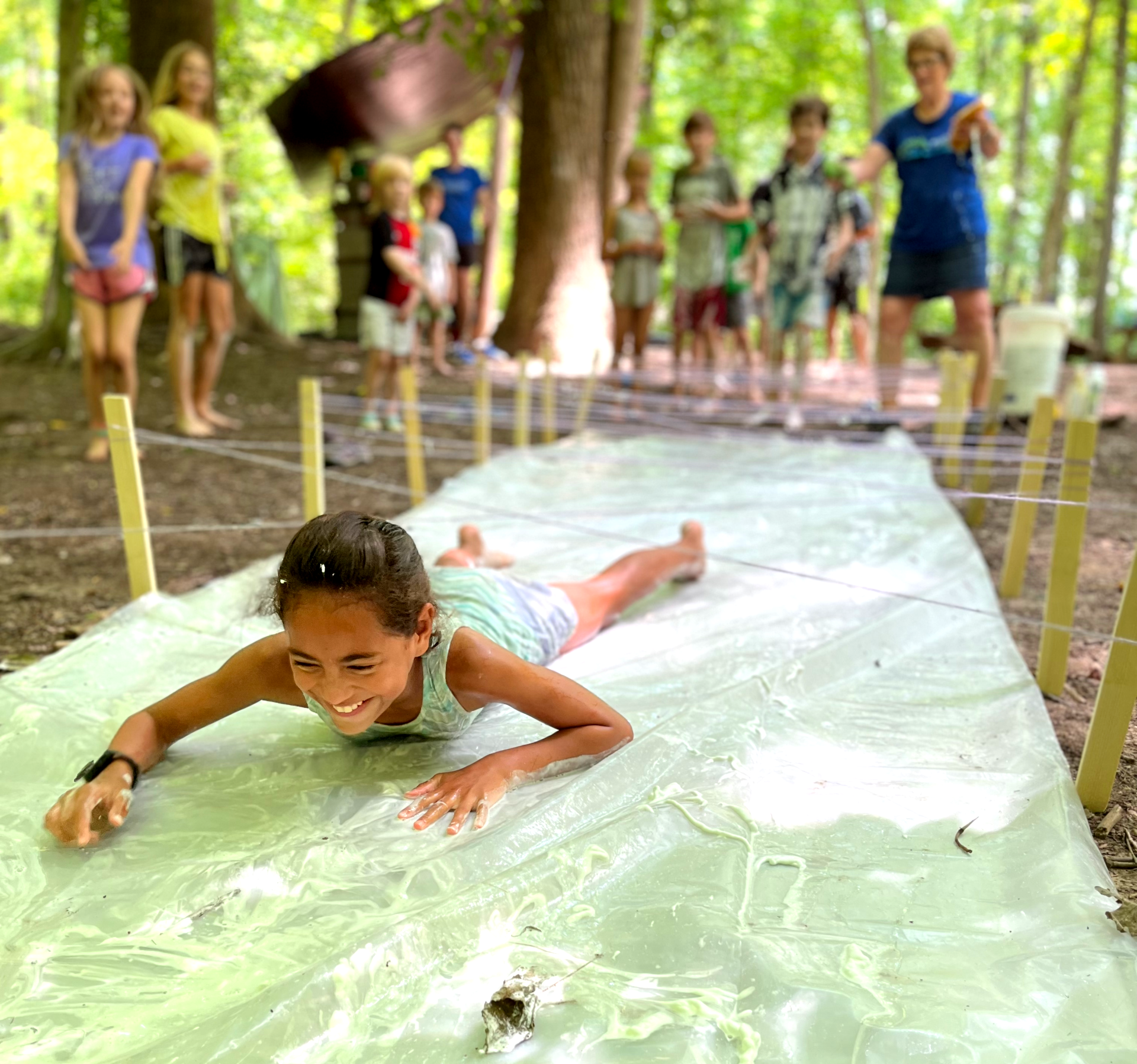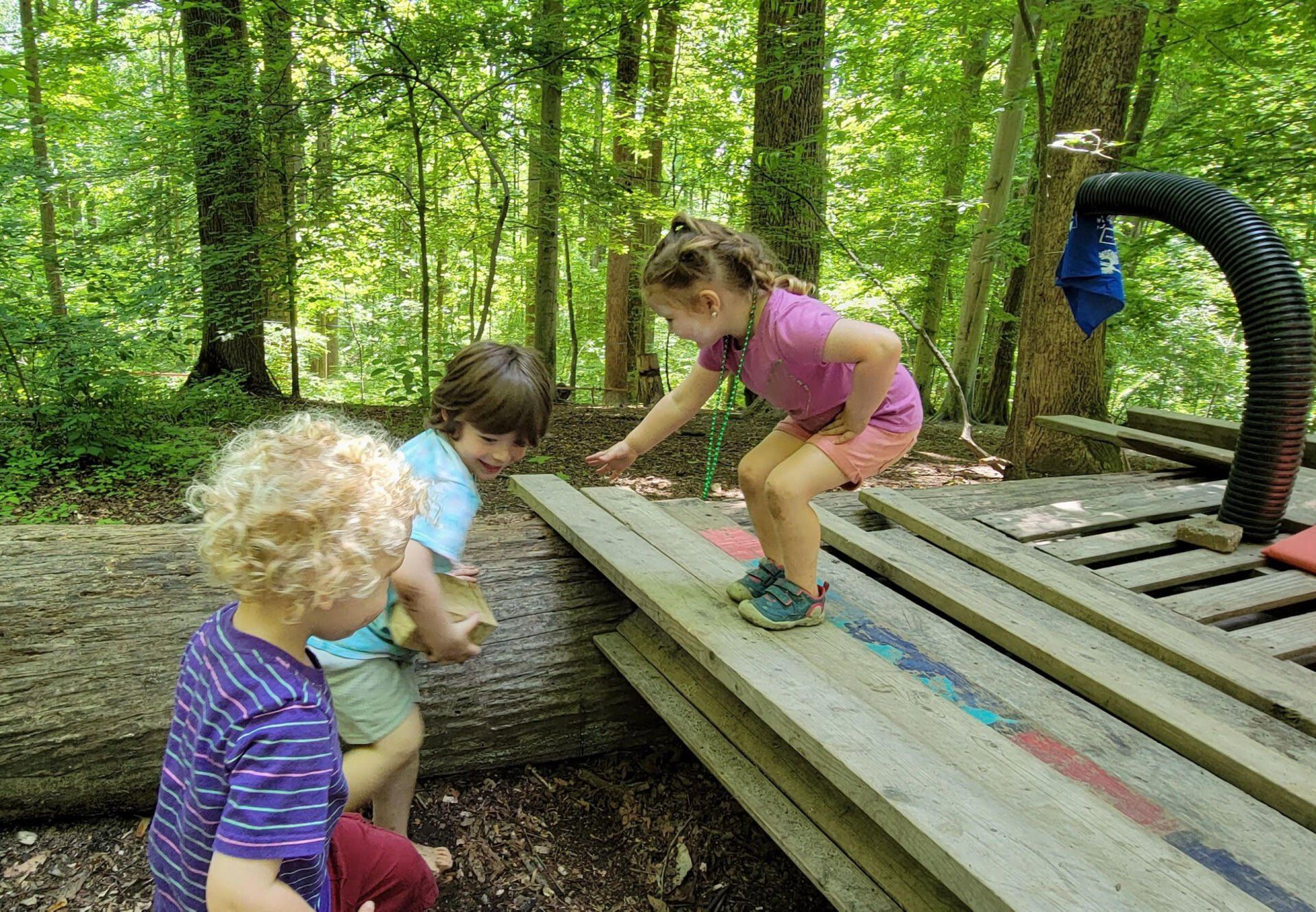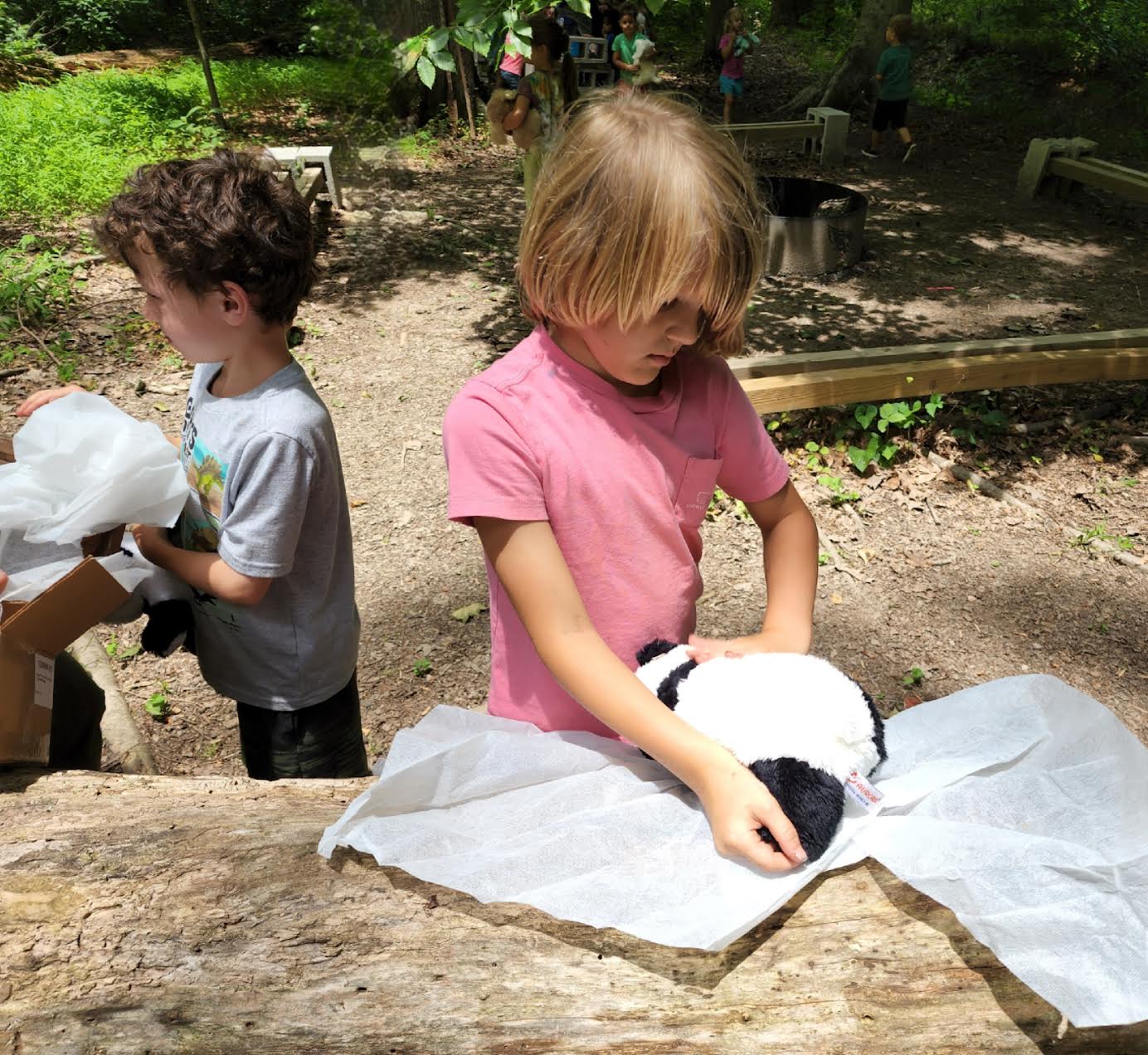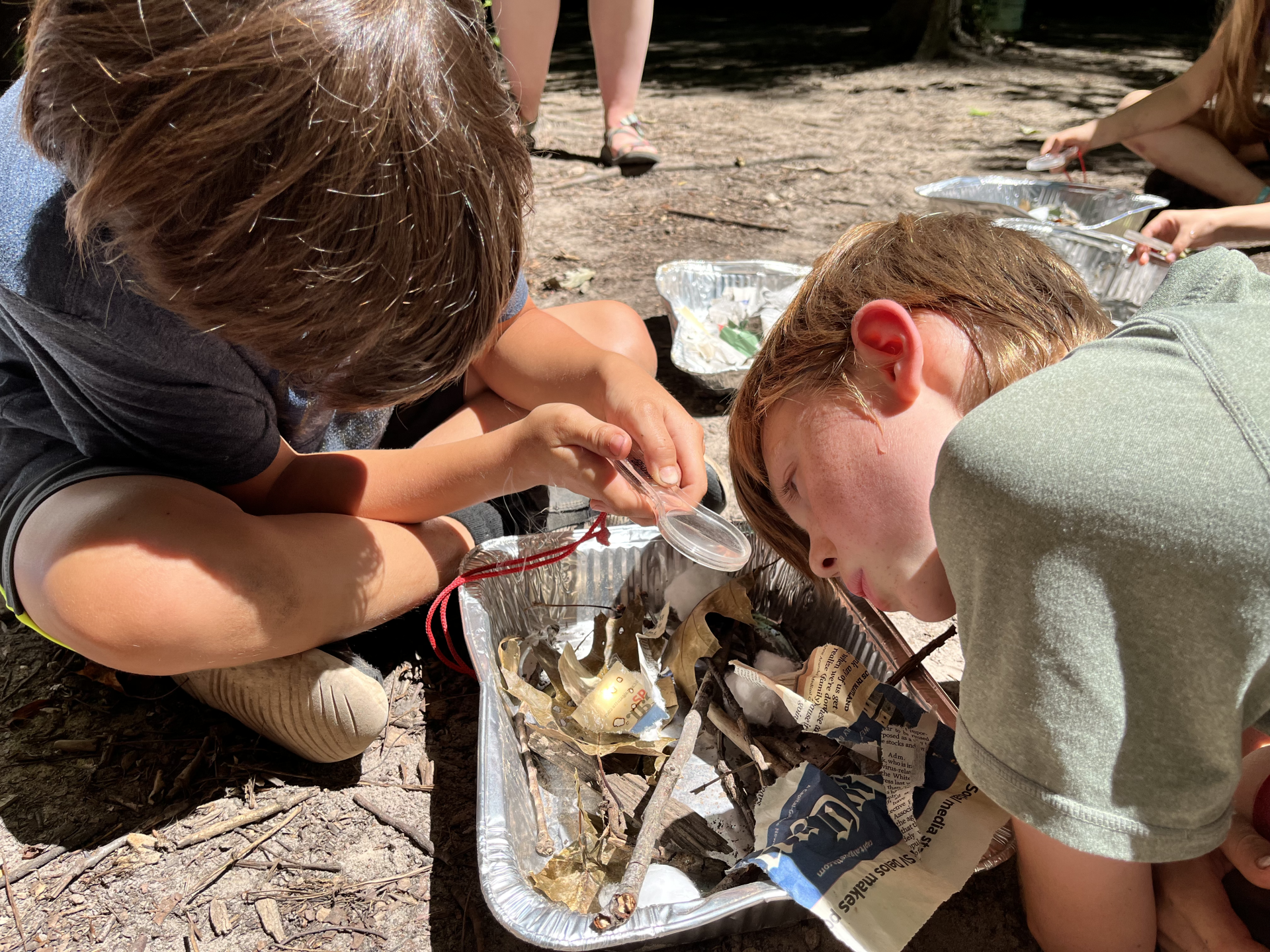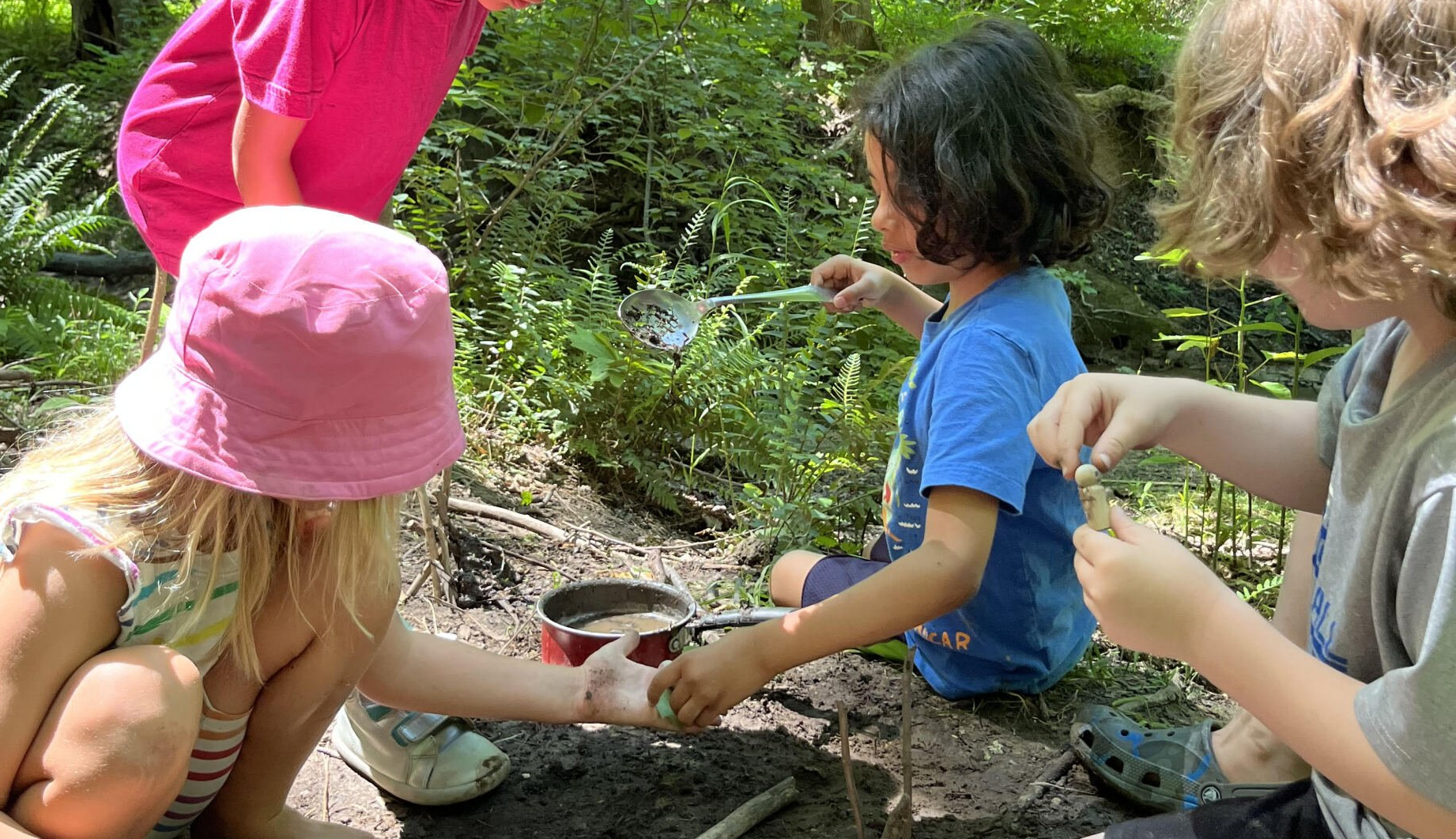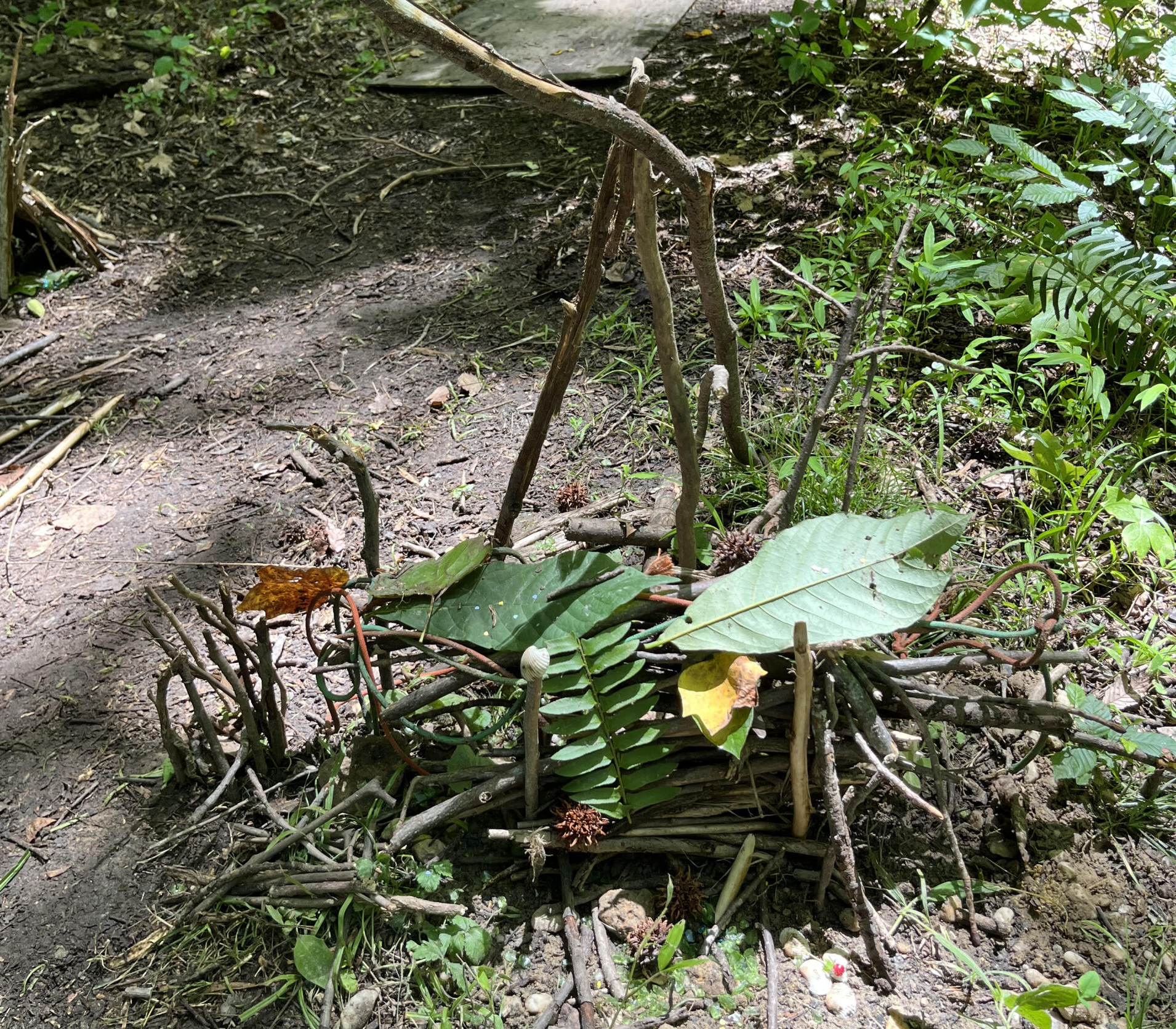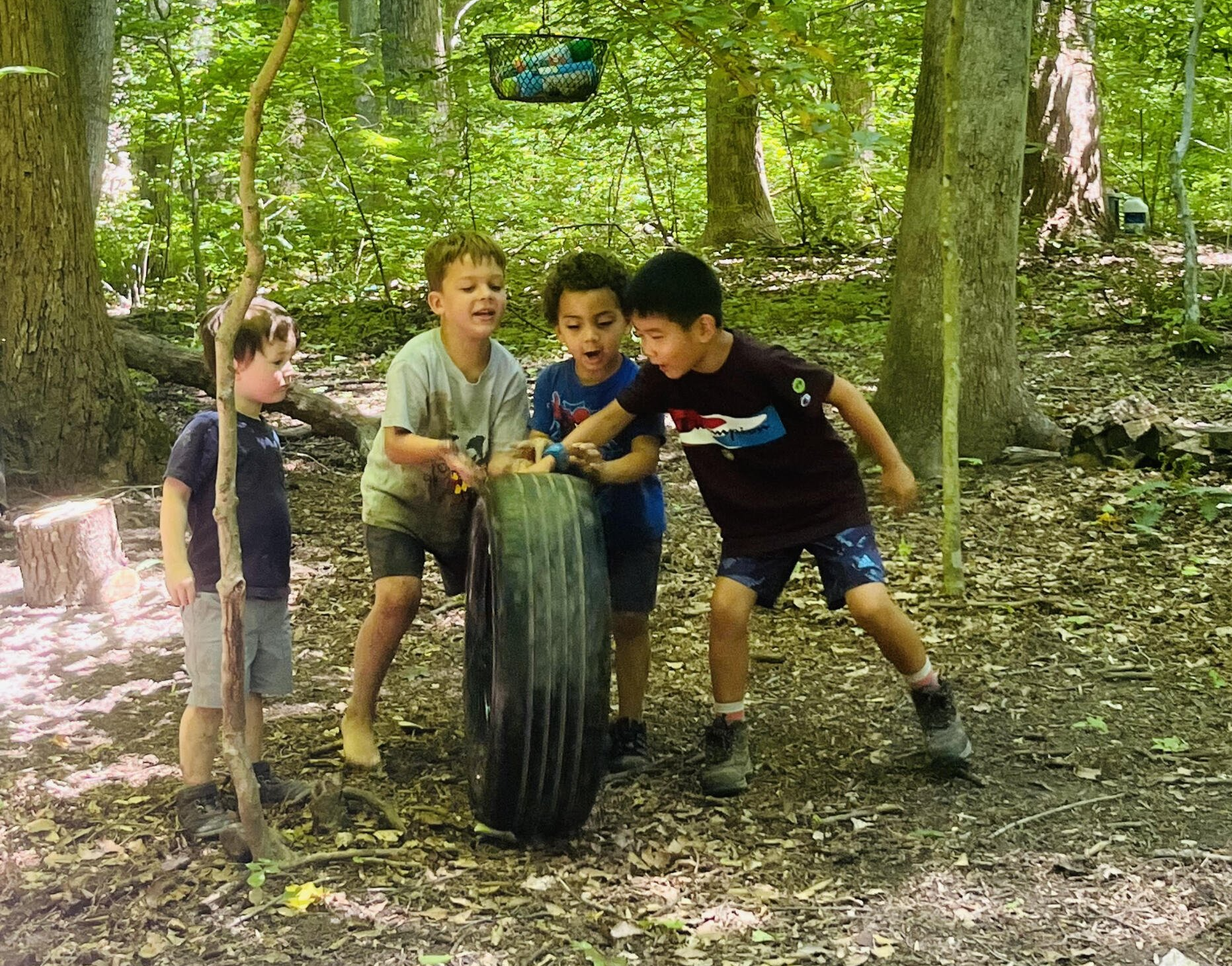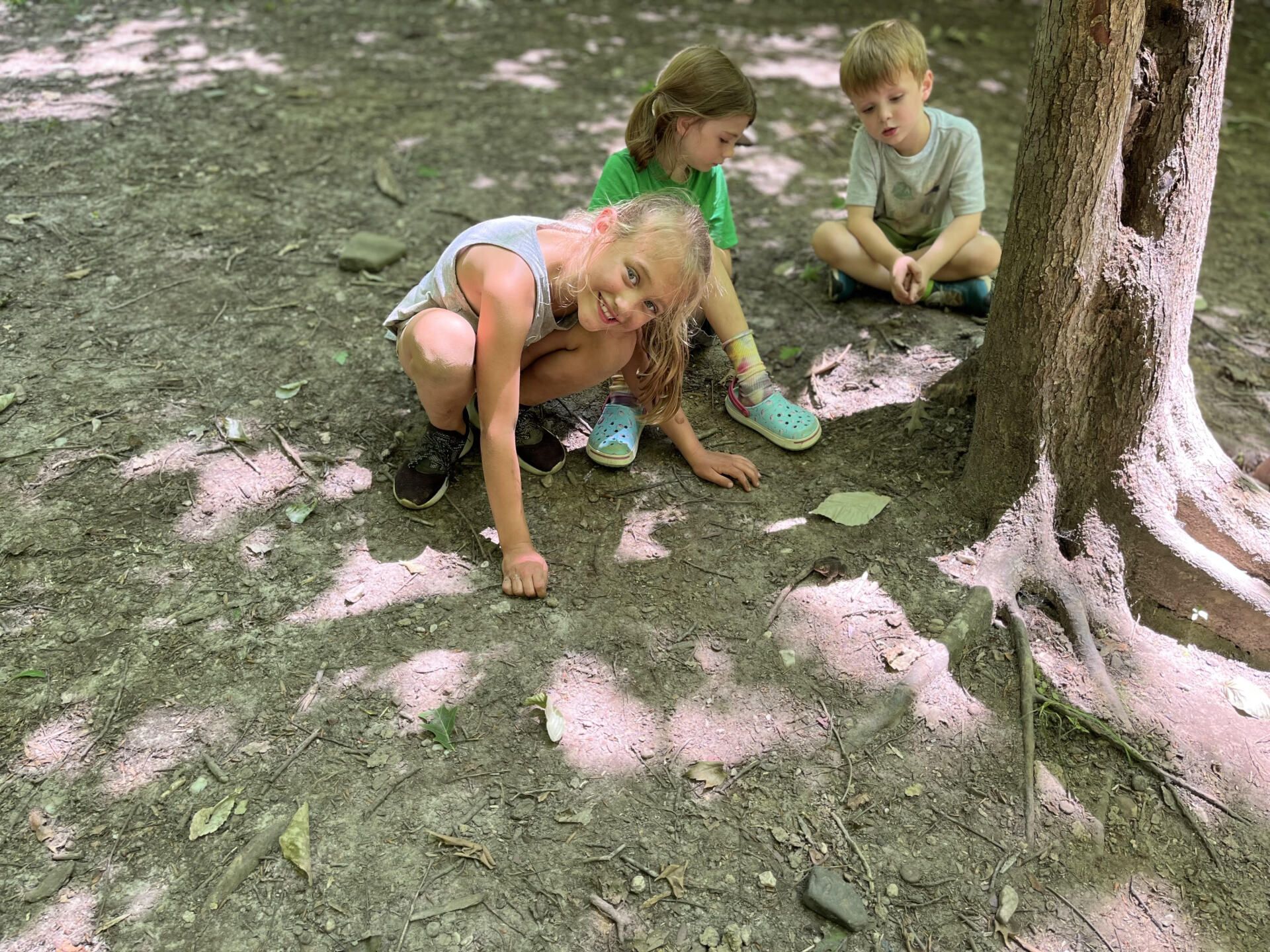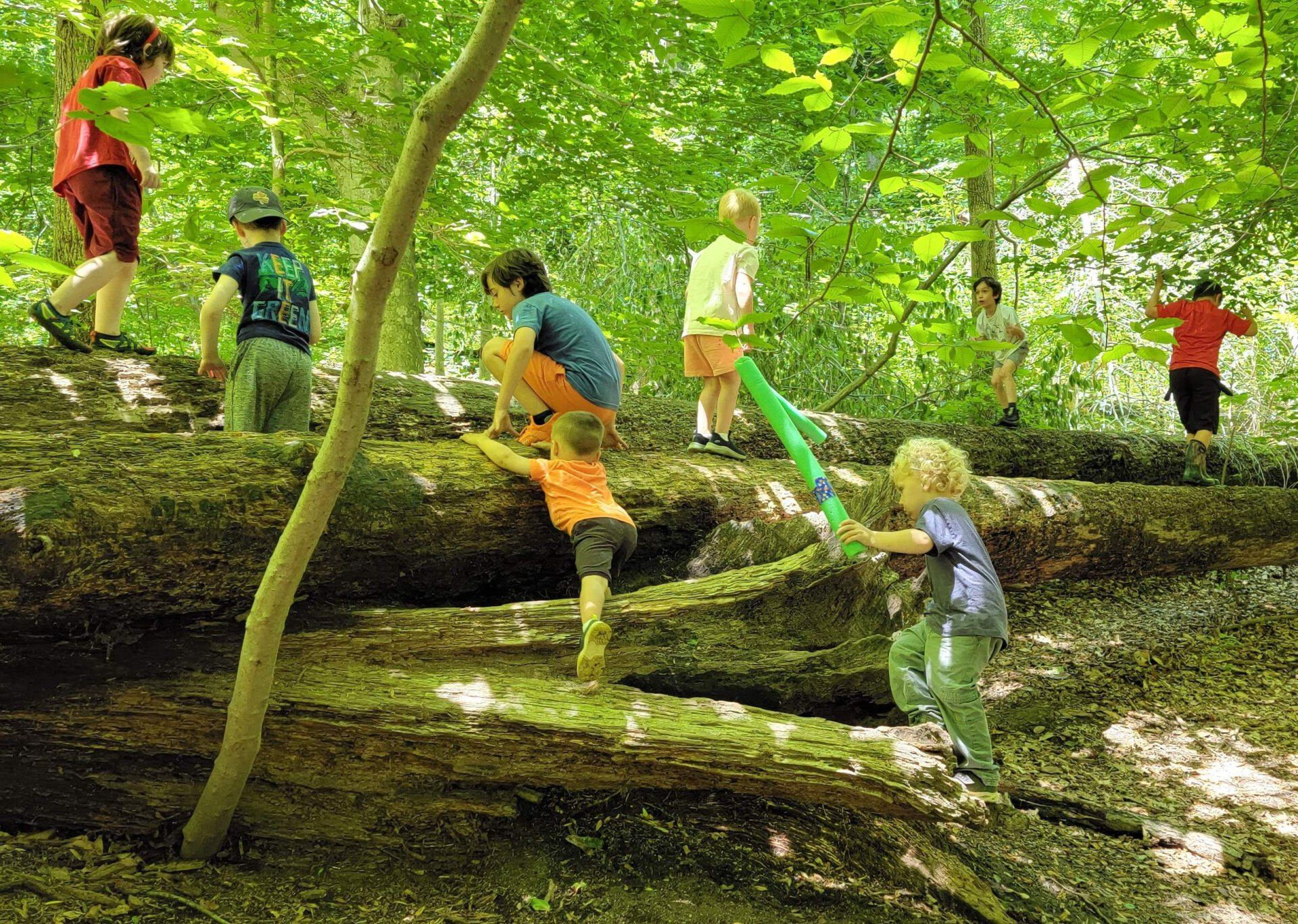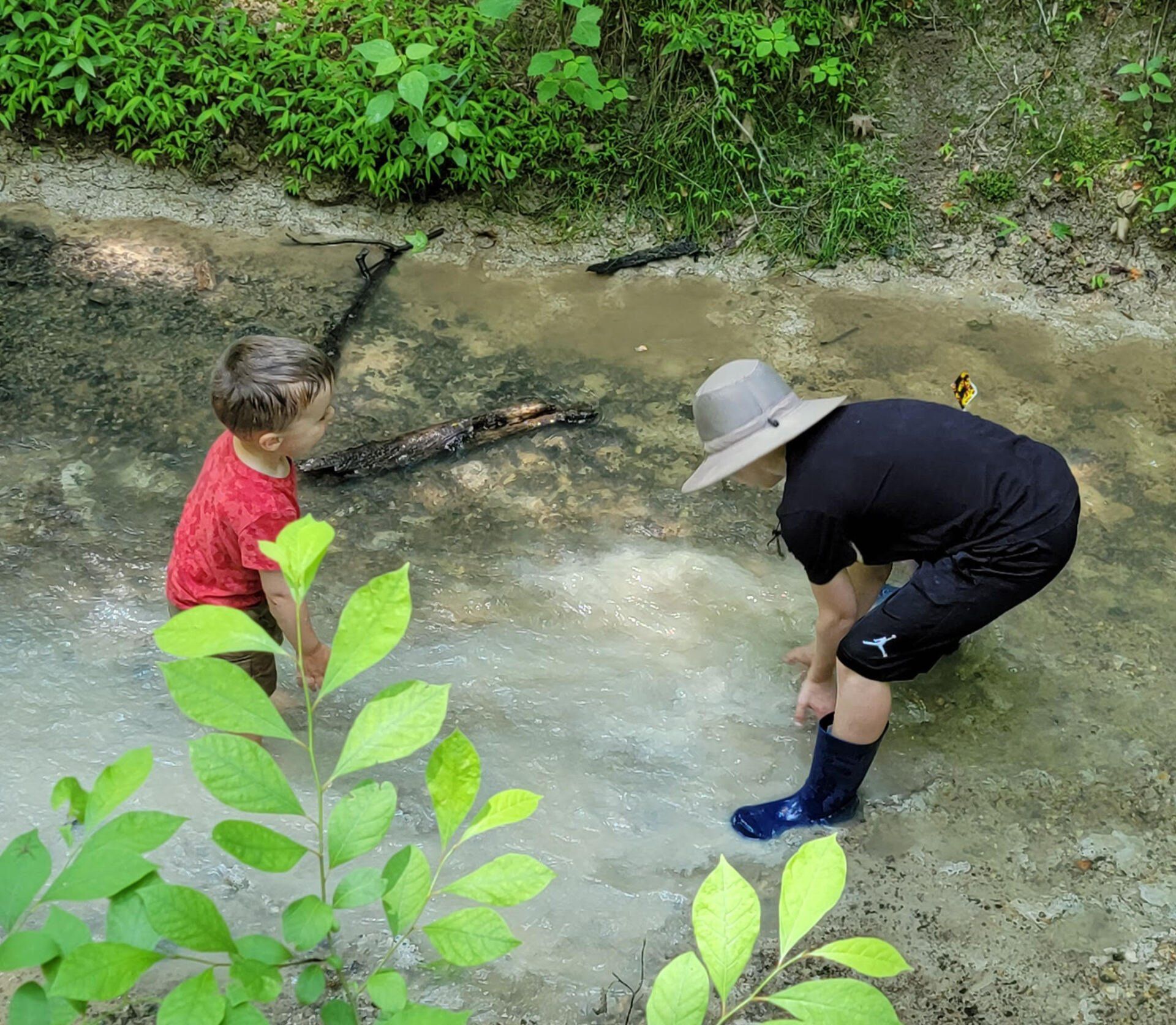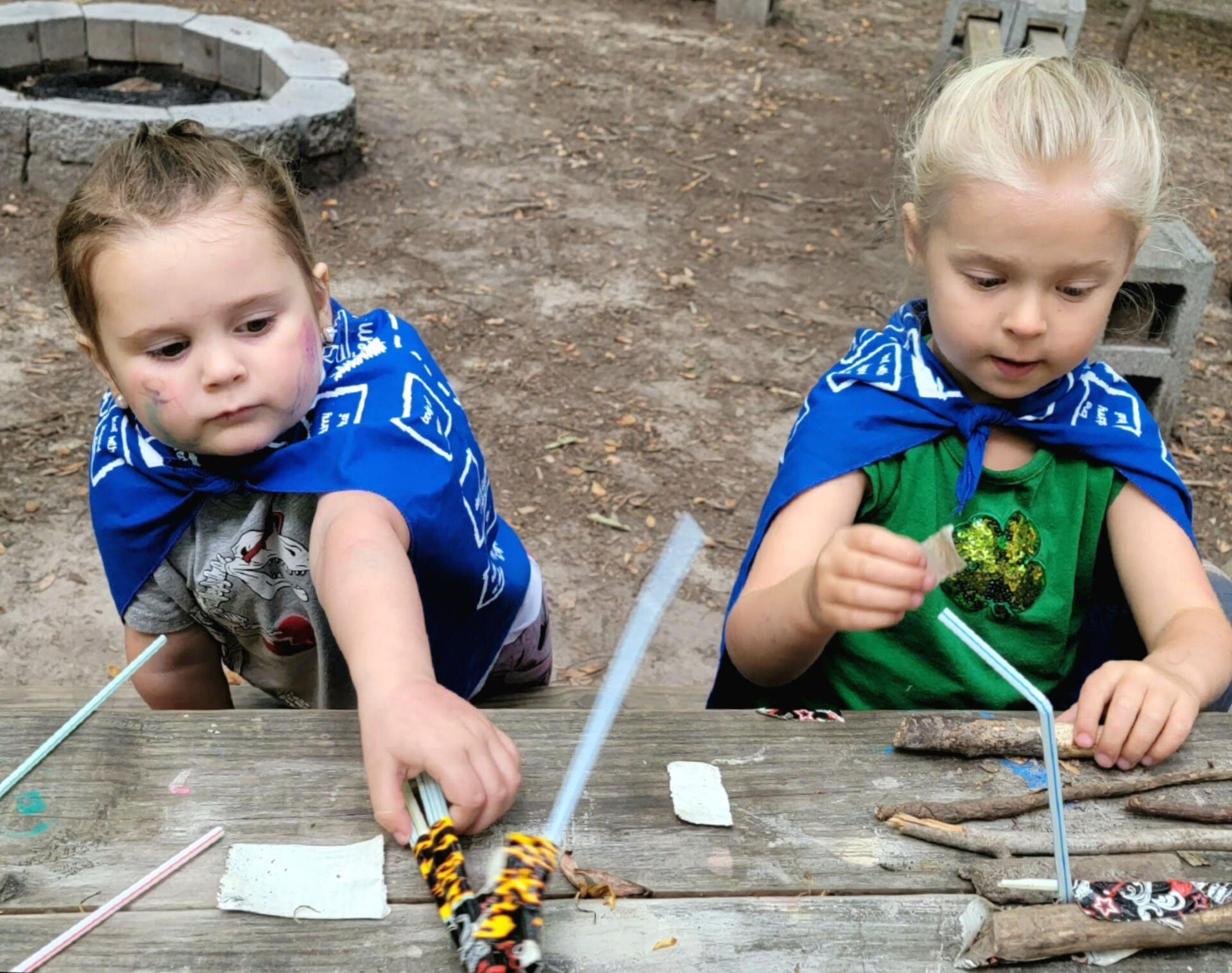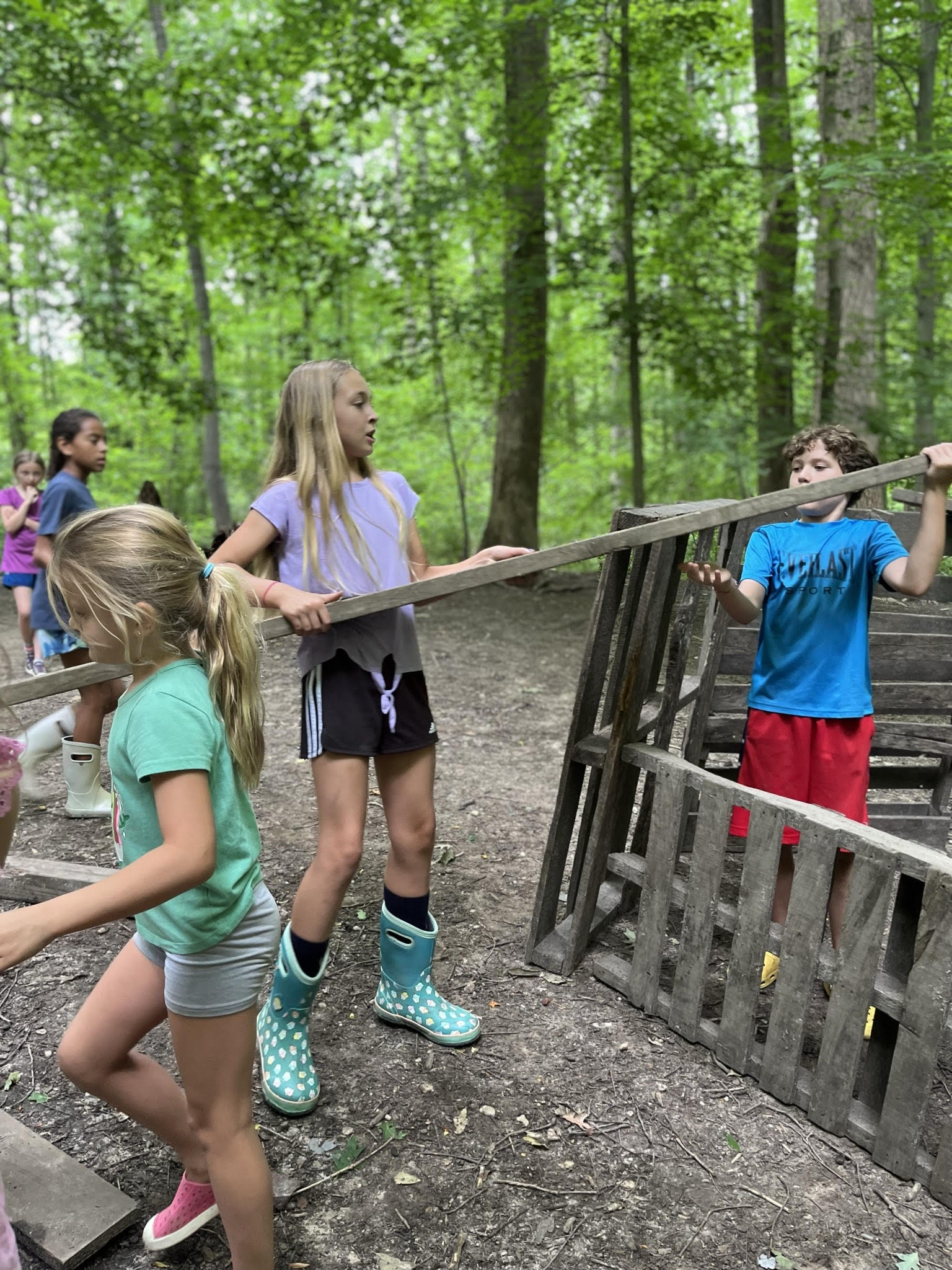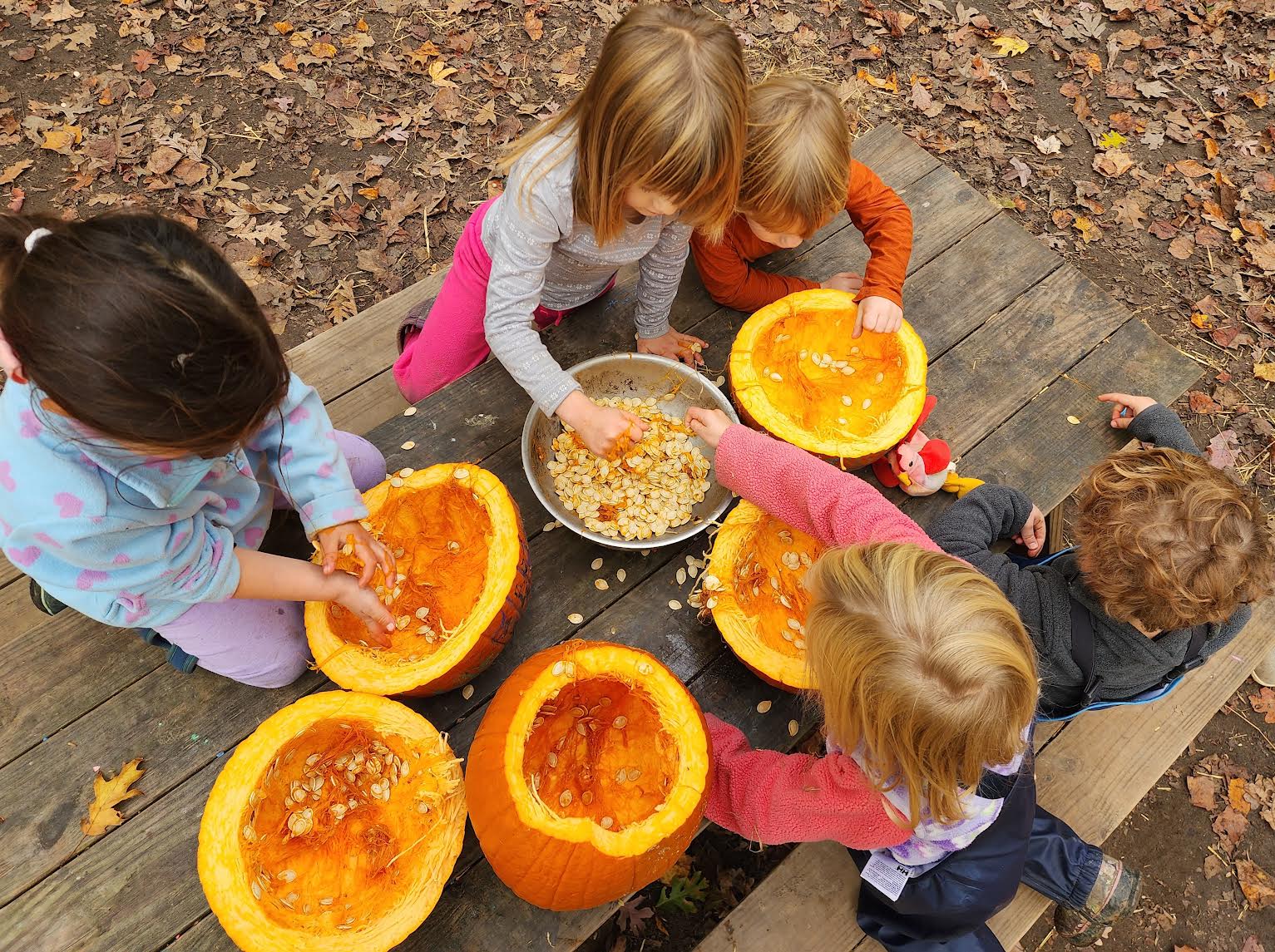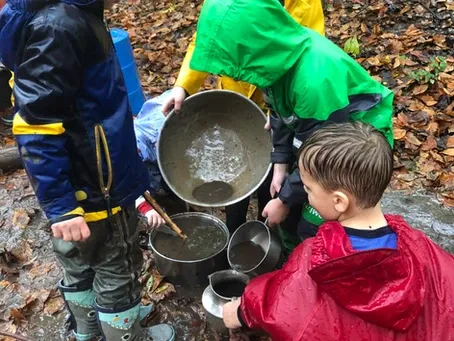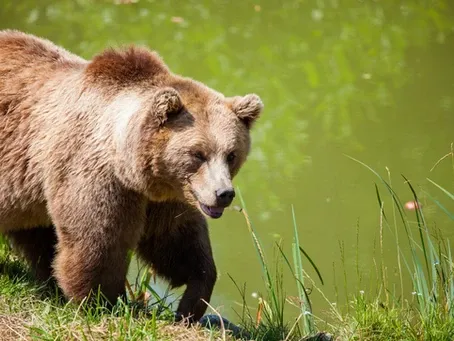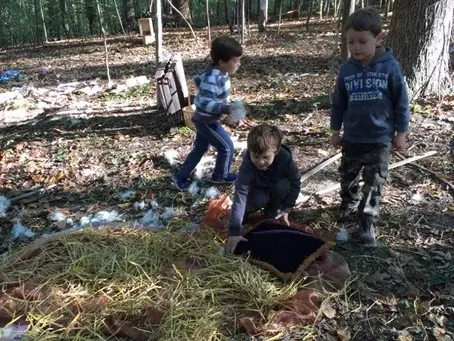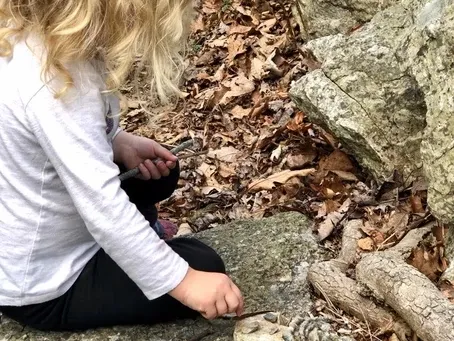Our programming includes FORESTcamp, FORESTplay, and FORESTtherapy groups. There are many documented benefits of nature immersion and our programs allow children the opportunity to engage in developmentally appropriate play while connecting with self, nature, and others. Our summer camps are led by highly trained FORESTguides that promote the development of every child, meeting needs with compassion. While summer camp offers plenty of fun activities throughout the day, there is always time for relaxation, free play, and rest among our canopies of trees. We beleive in supporting the WHOLE child so they can learn and thrive. Nature provides the optimal setting for growth in ALL areas of development.
Summertime, the River's Edge Way!
LK Toohey, MS, CCLS, Forest Guide • July 1, 2022
The fun of summer has just begun at River's Edge!
FORESTcamps: where childhood comes to life with imagination and wonder!
FORESTplay: where positive memories are made daily as we connect with nature, self, and others! Each week has a different theme to promote deeper understanding of natural elements and facilitate engagement and growth. Our groups have been spending most of their time exploring in the creek, observing insects around camp, and listening to birds! We have also treasure hunted, built forts, played games, and had many mud creations.
FORESTtherapy:
Our FORESTtherapy social skills groups this summer include different groups of preschool and school age children. During FORESTtherapy, we not only work on social skills but also practice mindfulness. Many have become very adept at their yoga and breathing techniques! While working on our focusing skills, we have created art from nature including stepping stones, mandalas, and family portraits. We aim to facilitate connecting with peers, and nature serves as our platform for therapeutic activities and discussions.
If you are interested in any of our programs, contact us today! We wish everyone a happy and healthy summer spent outdoors!
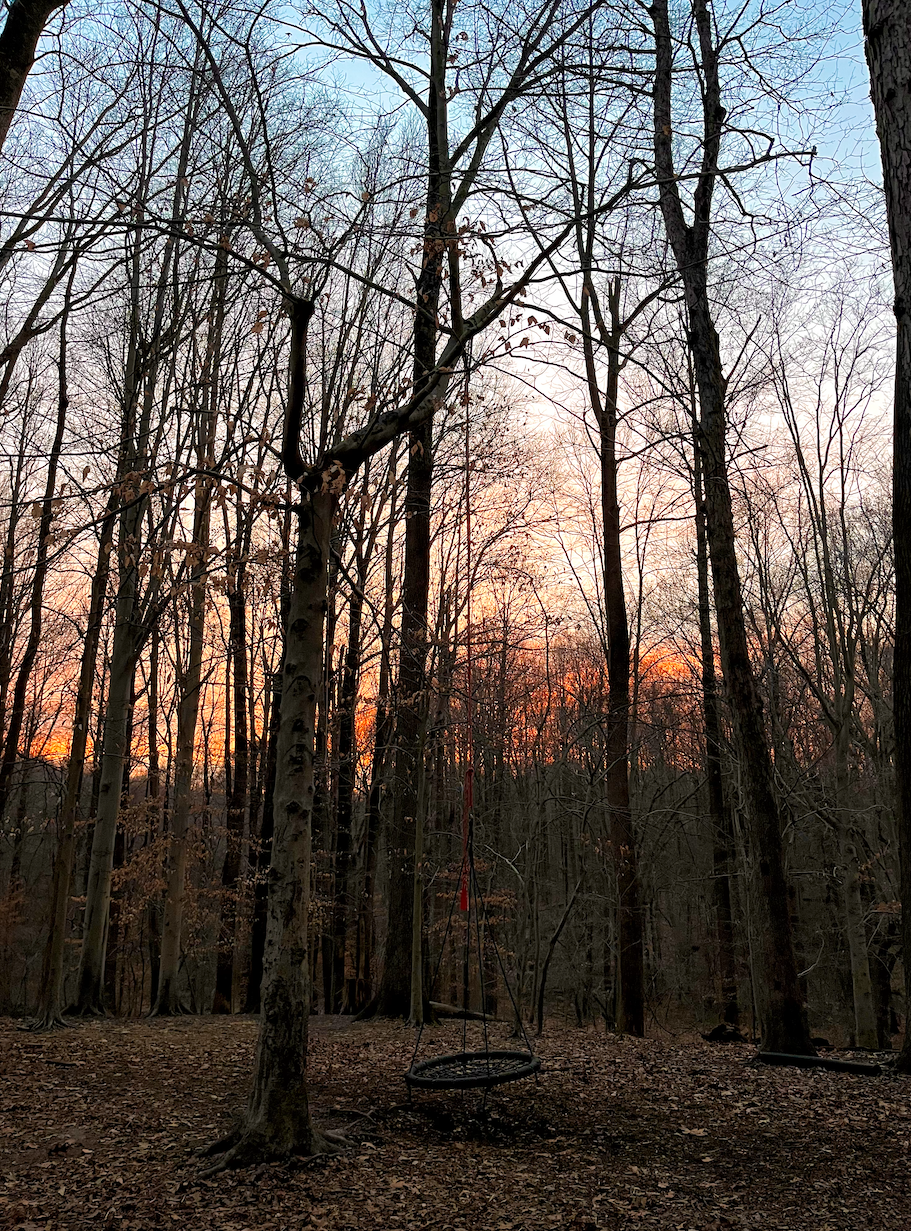
Building fires together Winter weather also presents the opportunity to build fires together and practice fire safety techniques. We teach children fire safety rules such as three points of contact with the ground and not to run or play in the fire pit area. Many groups enjoy working as a team to collect sticks and help set up the logs for burning. Sometimes, we are able to cook over the fire together, making baked apples, soup, and more.
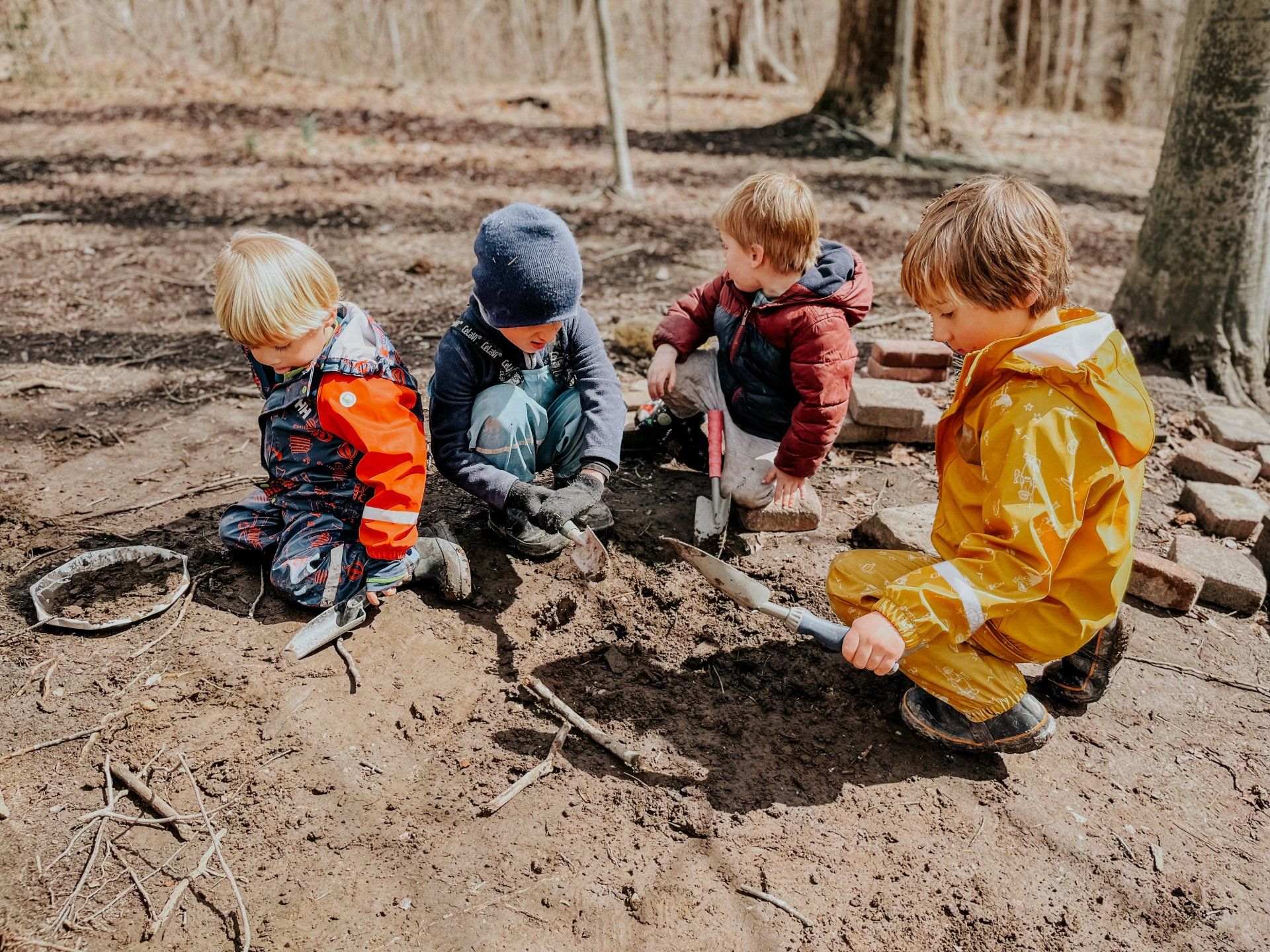
Spending significant time in nature has been linked to better overall physical and mental health, in addition to children having better academic performance. In all of our River’s Edge programs, children are moving their bodies and testing limits as they play. The natural materials provided allow for creativity and expression, in addition to the development of physical strengths. Throughout the winter, we have been taking many hikes and ventures to see what we could find in the forest and what changes may have occurred in the colder weather. There is rarely a dull moment as children begin to notice frozen water along the creek, frost covering the ground, many nut shells surrounding the trees, and more. As children become more experienced in the forest, we observe them beginning to notice natural elements on their own and showing them to us as guides, rather than us being always the first to point a discovery out.

Proprioception tells us how much force or muscle strength to use for different activities. This sense helps us know how to complete tasks such as picking things up gently, knowing how to put something down without force, and being overall more aware of our bodies. Nature offers plenty of full bodied play that will stimulate the proprioceptive sense. When children build forts with palettes or planks, they are engaging in “heavy work.” Heavy work provides sensory input and can be therapeutic as children focus to pick up a heavy log and have to coordinate with their body. Other examples may include: pushing a swing, pulling the rope swing or a heavy wagon, or digging with a shovel.
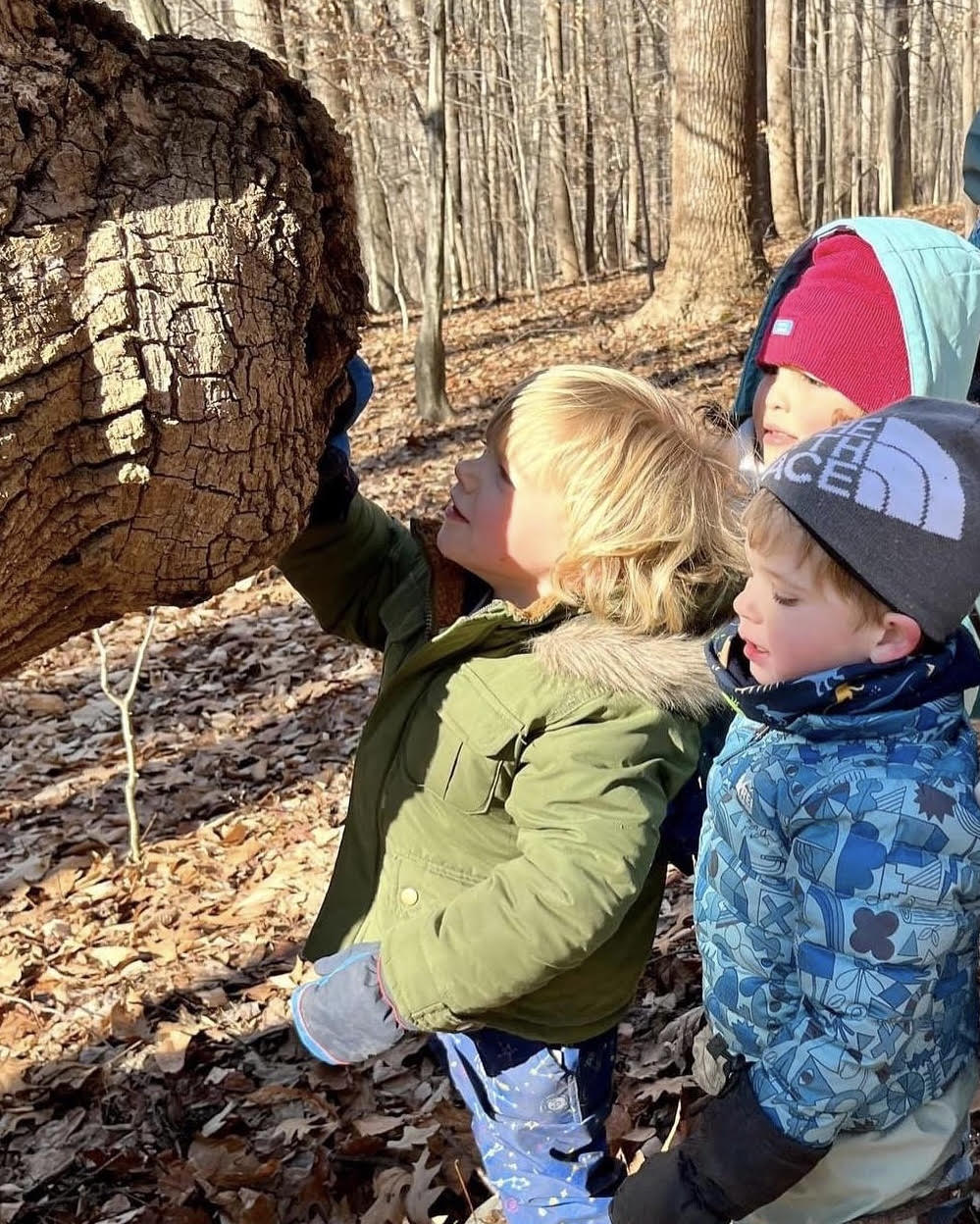
A recent article in the Wall Street Journal highlights the importance of a longer, slower childhood. Nature can greatly contribute to a longer, slower childhood and positively influence all areas of child development. What does this mean? Children need enriching and "varied" positive experiences for their brains to remain malleable for longer periods of time. Children learn there are many possibilities and often more than one answer to a question when they spend significant time in nature. The forest gives space for children to follow their curiosity and wonder. Nature is constantly changing, encouraging children to discover and play in novel ways. It’s all about the brain! T he architecture of the brain includes and ongoing process of neuron activity! The early years are the most active time period for neural connections to be formed. Connections are early in the brain build the foundation for later connections. In summary, the early childhood experiences will shape how well the brain functions through adulthood.


